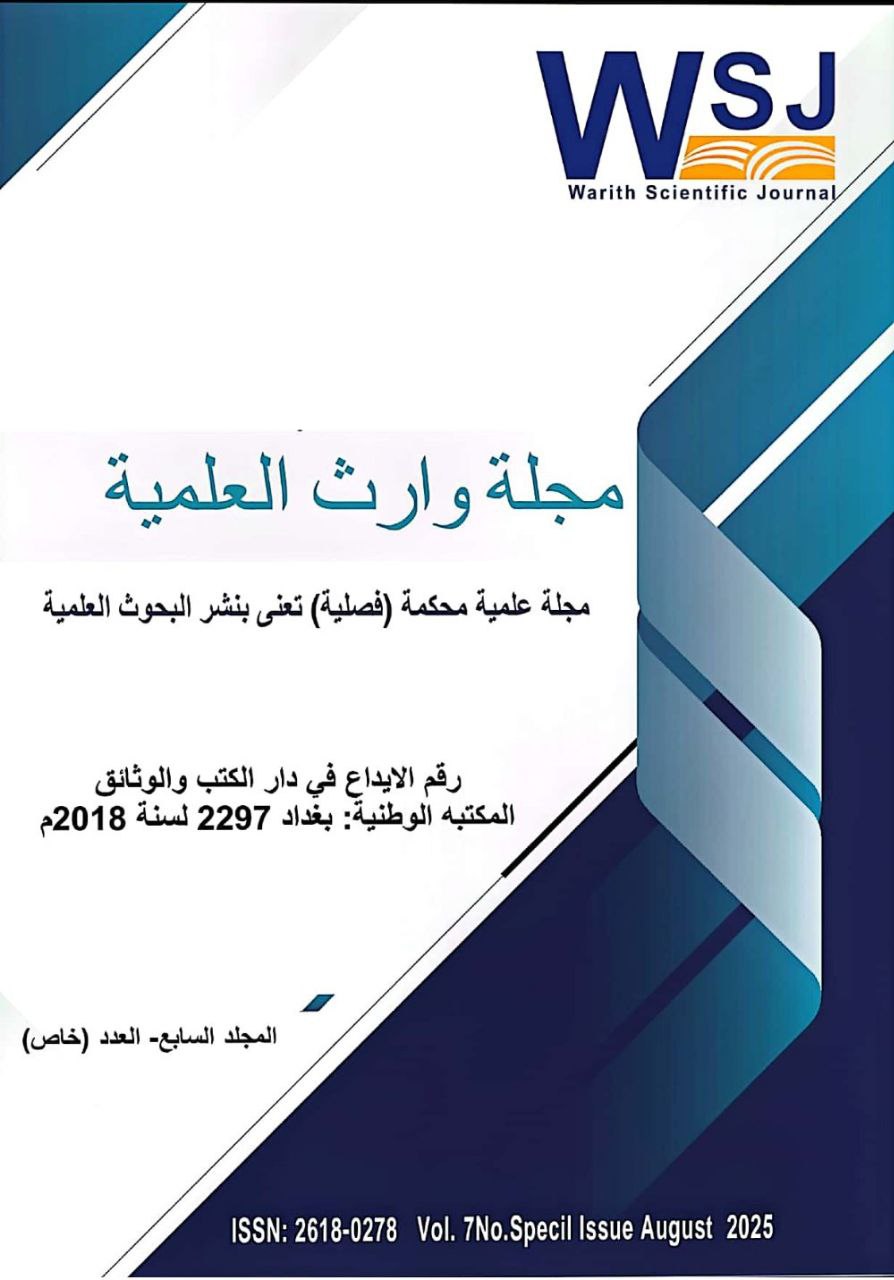Abstract
The topic of conscious leadership is one of the important topics in the organizational work environment of organizations, as the conscious leader must be flexible and adapt to different circumstances and fluctuations, because the conscious leader is aware of strengths, weaknesses, and personal motives, and works with the public interest, and possesses mental presence and full presence in the moment when interacting with others, and is characterized by courage, humility, and the ability to admit mistakes, accept criticism, and bear responsibility for the actions and decisions he takes in carrying out his leadership or functional duties. Therefore, this research addressed the independent variable, which is conscious leadership with its four dimensions (self-awareness, emotional awareness, cognitive awareness, situational awareness), and green work behavior with its seven dimensions (employee responsibility, employee attitudes, self-efficacy, leadership behavior, green organizational climate, green human resources management, and corporate social responsibility). This research was applied to a sample of (employees in the Kufa Municipality). The research aimed to emphasize that conscious leadership can only achieve its goals by building the cultural and environmental foundations of the organization’s strategies and rules for adopting green work behaviors, and working to confront all problems that affect the environment. The work and ability to promote and protect sustainable development and the ability to exploit available resources within ongoing and environmentally protected plans supported by the unification of visions among the organization's leaders in a work environment based on cooperation, mutual trust, equality, coordination, respect for others' opinions, and the pursuit of joint development, which together constitute support and promotion of green functional behavior. This research was based on the hypothesis (the relationship between conscious leadership and green functional behavior), from which sub-hypotheses emerged. The research reached the most important conclusion, which is that conscious leadership in organizations expresses self-awareness, emotional and cognitive awareness, and awareness of situations or circumstances, which contributes to making employees feel comfortable and perform the tasks assigned to them with high fluidity, and thus reflects on the strength of performance at work. It became clear that there is a significant correlation between conscious leadership and green functional behavior at the overall and sub-level of the research hypotheses. The senior management of the organization under study must work to support a work environment based on awareness and harmony, which supports the green functional behaviors of employees, and relies on modern and advanced means of interaction between individuals within the organization in a way that leads to increased interest of employees in achieving the vision, mission, and goals of the organization.
Keywords
Conscious leadership
green employee behavior
Holy Kufa Municipality.
Abstract
إن موضوع القيادة الواعية من الموضوعات الهامة في بيئة العمل التنظيمي للمنظمات، إذ يجب أن يتمتع القائد الواعي بالمرونة، والتكيف مع الظروف والتقلبات المختلفة، وذلك كون القائد الواعي يدرك نقاط القوة والضعف والدوافع الشخصية ويعمل بدافع المصلحة العامة ويمتلك الحضور الذهني والتواجد الكامل في اللحظة عند التفاعل مع الآخرين ويتسم بالشجاعة والتواضع والقدرة على الاعتراف بالخطأ وتقبل النقد وتحمل المسؤولية عن الأفعال والقرارات التي يتخذها في تنفيذه لمهامه القيادية أو الوظيفية، لذا تم التطرق في بحثنا هذا المتغير المستقل وهو القيادة الواعية بأبعادها الأربعة (الوعي الذاتي، الوعي العاطفي، الوعي المعرفي، الوعي الظرفي)، والسلوك الوظيفي الأخضر بأبعاده السبعة (مسؤولية الموظف، مواقف الموظفين، الكفاءة الذاتية، سلوك القيادة، المناخ التنظيمي الأخضر، إدارة الموارد البشرية الخضراء، المسؤولية الاجتماعية للشركات)، حيث تم تطبيق هذا البحث على عينة من (الموظفين في بلدية الكوفة) حيث أراد البحث التأكيد على إن القيادة الواعية لا يمكن تحقيق أهدافها إلا من خلال بناء الأسس الثقافية والبيئية لاستراتيجيات المنظمة وقواعدها في تبني سلوكيات العمل الأخضر، والعمل على مواجهة كل المشاكل التي تؤثر في بيئة العمل والقدرة على تعزيز وحماية التنمية المستدامة والقدرة على استغلال الموارد المتاحة ضمن خطط مستمرة ومحمية بيئياً مدعومة بتوحيد الرؤى لدى قادة المنظمة في أجواء عمل مبنية على التعاون والثقة المتبادلة والمساواة والتنسيق واحترام الرأي الآخر والسعي إلى التنمية المشتركة التي تشكل بمجموعها دعم وتعزيز السلوك الوظيفي الأخضر، وارتكز هذا البحث على فرضية مفادها (القيادة الواعية تسهم في تعزيز السلوك الوظيفي الأخضر) وانبثقت منها فرضيات فرعية وتوصل البحث إلى أهم استنتاج هو إن القيادة الواعية في المنظمات تعبر عن الوعي الذاتي والعاطفي والمعرفي والوعي بالمواقف او الظروف الذي يسهم بجعل العاملين يشعرون بالراحة ويؤدون الأعمال المناطه بهم بانسيابية عالية وبالتالي ينعكس على قوة الأداء في العمل، وأتضح وجود علاقة ارتباط ذات دلالة معنوية بين القيادة الواعية والسلوك الوظيفي الأخضر على المستوى الكلي والفرعي لفرضيات البحث، وان على الإدارة العليا في المنظمة المبحوثة أن تعمل على دعم بيئة عمل قائمة على أساس الوعي ومنسجمة وتدعم السلوكيات الوظيفية الخضراء للعاملين وتعتمد على الوسائل الحديثة والمتطورة للتفاعل بين الأفراد داخل المنظمة بالشكل الذي يؤدي إلى زيادة اهتمام العاملين في تحقيق رؤية ورسالة وأهداف المنظمة.
Keywords
القيادة الواعية، سلوك الموظف الأخضر، بلدية الكوفة المقدسة.
